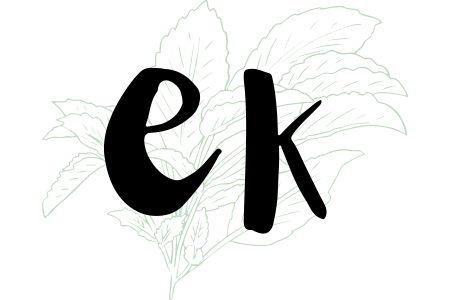Merge the people and ideas influencing environmental sustainability globally, and we discover that it’s our planet’s most prolific industry to-date. The movement envisions world-changing solutions born out of the need to preserve our cultures, nourish ecological habitats while encouraging economic alternatives.
Part One. Choices and the Changemakers
While we often center our platform on making sustainable living tangible, at its heart, EcoKarma is equally as solutionary thinking. So, we begin with Part One of our two-part series recognizing the Global Choices and Voices Creating World-Changing Solutions.
We’ll highlight transformative choices among the global changemakers who inspire us all to find answers and drive solutions for a better, more sustainable planet.
Environmental Protection Equals Cultural Preservation
Environmental protection is the foundation for cultural preservation for indigenous peoples globally. Their cultures abide by the premise that people belong to the land, not the other way around. That means we continue to fail our neighbors by:
- Ignoring food insecurities that affect vulnerable populations,
- Embracing land grabbing as a viable economic model, and
- Denying climate change forced migration is anything but detrimental.
What’s worse is when the justification for undermining indigenous rights coerces an “out of sight and out of mind” mentality either by habit or choice. Plus, when the GDP is the go-to for economic sleight of hand, you get a whole lotta haves telling the have-nots to live with it.
But there are changemakers out there whose life’s ambition is to motivate others to take action. It’s not just that you walk a mile in someone else’s shoes, but that you’re inspired enough to put them on in the first place.
Real World Examples at work for Cultural Preservation & Environmental Sustainability
Her Planet Earth and Sulubaaï Environmental Foundation
Raising over half a million dollars for charity, HER Planet Earth founder and powerhouse Christine Amour-Levar increases global awareness for indigenous women’s rights by leading all-female expeditions around the world. In a recent interview, we discovered her influential role while working with the Sulubaaï Foundation located on Pangatalan Island in the Philippines restoring coral reef habitats to alleviate food insecurities:
EcoKarma: The locations are stunning. How are your choices inspired?
Christine: I try to find remote places and organize challenges that have never been attempted before by [women’s teams].
EcoKarma: The data discussed in “Guide d’ingénierie écologique” shows high success rates the first year after installation [of coral nurseries] (Léocadie et al., 2020), but how else does HER Planet Earth quantify or qualify its impact?
Christine: We work very closely with the Sulubaaï Foundation, and in fact, they have apparent goals to measure impact for the next three years. Their objective is to see a significant increase in fish resources in the bay with restored coral habitats, which will improve biodiversity resilience in the long term and better livelihood for the fishermen from the area.
EcoKarma: What would you like the world to know about the importance of coral reefs and the increasing burdens on women with climate change’s compounding effects?
Christine: Coral reefs support the livelihoods of millions of people, overwhelmingly in developing countries. Coral ecosystems are a food source; protect coastlines from storms and erosion. They provide habitat, spawning, and nursery grounds for economically important fish species and are hotspots of marine biodiversity.
[Corals reefs] provide jobs and income to local economies from fishing, recreation, and tourism; and are a source of new medicines. Today, in many countries worldwide, women are among the most vulnerable to climate change and environmental degradation. [S]tatistics show that of the 1.3 billion poor people worldwide, the majority are women.
EcoKarma: What’s been your most significant lasting impression as a result?
Christine: Our funds have gone to help women grow crops [b]etter suited for their soil. We help plant lotus instead of rice in regions that are too flooded, peanuts in mountainous areas where the earth is more eroded and depleted, [and] teach them how to dry seaweed and prepare them for its commercialization. [T]his way, we hope to help them build up their livelihoods and [increase] resilience to climate change.
Honor The Earth
With related pursuits for cultural preservations and environmental sustainability, we’ve discovered like-minded global partners bringing awareness to both the impact of land grab politics and global warming on our water resources.
As a nonprofit organization, Honor the Earth began in 2008 in Ecuador campaigning to have water rights codified in their constitution. Upon this initial success, indigenous movements spanned the globe to include the Maoris of New Zealand, glaciers in India, and water reservoirs in Pennsylvania. Their most challenging fight is with the oil industry threatening Ojibwe bands near Lake Superior’s shores. The land grabbing is more of a water grabbing that can have catastrophic environmental results for the people, their land, and ultimately their culture.
Similarly, poets Aka Niviana and Kathy Jetnil-Kijiner and from Greenland and the Marshall Islands (respectively) seek to bring awareness to melting island shorelines due to climate change. Although both islands are thousands of miles apart, Greenland’s glacial melt will reportedly raise sea levels by seven meters, destroying both the islands and their cultures. For Niviana and Jetnil-Kijiner, the choice to be as influential as possible was made for them—by us.
Migration: Environment vs. Economy
Many people label the impending and necessary migrations of these people as having economic benefits for the host countries.
Author Zickgraf (2020) writes, “looking at migration as an inherent problem that needs to be ‘solved’ overlooks the diversity of migration and its benefits.”
But where’s the choice for those on the losing side?
No matter how rosy the picture painting, to them, the constant and inexplicable environmental abuse just looks like tossing riches from a cliff while trying to race to the bottom to catch them before they land.
Soliphilia, Topophilia, and Solastalgia for our Environments
One of the many questions asks how to instill these concepts to feel the impact of our choices. Author and poet Wendell Berry, the Surfrider Foundation, and McKenzie River Trust are three prime examples of people and organizations that seem to understand that the real connection between people and land should resonate in sustainability.
Defining Soliphilia
With that, there’s an oft misattributed quote out there about borrowing the land from our children. In reality, the section comes from Berry’s work entitled: The Unforeseen Wilderness: An Essay on Kentucky’s Red River Gorge. He writes,
We can learn about it from exceptional people of our own culture and from other cultures less destructive than ours. I am speaking of the life of a man who knows that the world is not given by his fathers but borrowed from his children; who has undertaken to cherish it and do it no damage, not because he is duty-bound, but because he loves the world and loves his children.
The Unforseen Wilderness: An Essay on Kentucky’s Red River Gorge. Wendell Berry. 1971.
Berry recognizes that economics is commonly at play when deciding which plot of earth is less deserving of our nostalgia than the others, identifying the generational economic benefit that follows land preservation.
His love for a place and everything interconnected with it is called soliphilia—a feeling that goes as deep as your bones.
Defining Topophilia
Similarly, both the Surfrider Foundation and McKenzie River Trust understand that water is life—and it touches everything. Their missions include banning plastics, beach and clean waterway advocacy, or habitat restoration.
In essence, once we find love for the earth’s topography- topophilia– and physically start to take care of it, we’ll bear in mind even the ancestors that we’ll never meet.
Defining Solstalgia
Solastalgia is a relatively new term joining the stage in environmental discussions. In short, solstalgia means that people suffer when their environment changes, which means that when change is forced, as in the case of many Native Americans or climate refugees, the impact is shattering.
Think about it this way:
Have you ever felt overwhelmed with homesickness?
Once you visit, have your mom’s famous pie or lasagna, and sate the melancholy, then you can return to your new life without an issue.
But for people forced into displacement and with no opportunity to see their homes ever again, they experience a loss of security and identity alongside debilitating consequences (Mason, 2010).
Strength Built in Numbers: Choices for Sustainable Living
Anne Marie Bonneau said, “We don’t need a handful of people doing zero waste perfectly. We need millions of people doing it imperfectly.”
But how?
No matter where you begin the “imperfect” pursuit, together we can all slow the process of environmental degradation, overturn cultural forfeiture, and maybe start to see how the economics of yesterday is no longer the same reasonable economics of the future. Maybe we can even start to pay for mother nature (Scales, 2015), but that’s a big rabbit hole to get into now. Right now, let’s take a look at what you can do with plastics and renewable energy.
4 Key Environmentally Sustainably Choices that We Can Make
1. Upend the linear plastic economy. Start by using only environmentally safe straws from SWZLE, carry a refillable water bottle, and say no to pollutive BPA-laden receipts. While these may seem like small choices, again we have to emphasize the importance of the sort of ripple-effect that these plastic-alternatives can have on your own life. Take a look at our eco-friendly options, featuring a plethora of environmentally sustainable alternatives you can swap out for single-use or plastic items your life.
2. Encourage and advocate for a circular plastic economy. That way, marginalized people in industrially growing nations collect plastic as a kind of ‘Bitcoin for the Earth’ (Katz, 2018), instead of filling our oceans with one garbage truck-load of plastic per minute (Ford, 2020).
3. Collaborate and create more things like outboard motors that collect microplastics from the ocean. At Suzuki, marine scientists and engineers formulate solutions together.
4. Invite your workplace to utilize open spaces for solar and wind energy.
Worthy Ancestors
Roman Krznaric’s book The Good Ancestor invites each of us to discover these truths. By creating world-changing solutions toward environmental sustainability for generations we’ve yet to meet, we hold a capacity to overflow with hope, inspire change, encourage others, and uplift the spirits of our children and ancestors.
If we’ve inspired you to put on the shoes to walk a mile, let us know where they take you.
Sources:
Constable, A. L. (2017). Climate change and migration in the Pacific: options for Tuvalu and the Marshall Islands. Reg Environ Change 17, 1029–1038. https://doi.org/10.1007/s10113-016-1004-5
Ford, D. (2020). COVID-19 Has Worsened the Ocean Plastic Pollution Problem. Scientific American. https://www.scientificamerican.com/article/covid-19-has-worsened-the-ocean-plastic-pollution-problem/
Jetn̄il-Kijiner, K. (2018). Rise: From One Island to Another. YouTube. https://www.youtube.com/watch?v=HYf4yIYHVws&feature=emb_title
Katz, D. (2018). The surprising solution to ocean plastic. YouTube. https://www.youtube.com/watch?v=mT4Qbp89nIQ
Krznaric, R. (2020). The good ancestor: A radical prescription for long-term thinking. New York: The Experiment.
Léocadie, A., et al. (2020). Guide d’ingénierie écologique: La réparation des récifs coralliens et des écosystèmes associés. Paris: Édition IFRECOR.
Liberti, S. (2014). Land grabbing: Journeys in the new colonialism. Brooklyn, NY: Verso.
Mason, P. (2010). Solastalgia, Soliphilia and the Ecopsychology of our Changing Environment. Neuroanthropology.net. https://neuroanthropology.net/2010/01/30/solastalgia-and-the-ecopsychology-of-our-changing-environment/
Power, E. (2008). Conceptualizing Food Security for Aboriginal People in Canada. Canadian Journal of Public Health / Revue Canadienne De Sante’e Publique, 99(2), 95-97. Retrieved December 21, 2020, from http://www.jstor.org/stable/41995048
Scales, I. (2015). Paying for nature: What every conservationist should know about political economy. Oryx, 49(2), 226-231. doi:10.1017/S0030605314000015
World Economic Forum. (2016). The New Plastics Economy: Rethinking the Future of Plastics. We Forum. http://www3.weforum.org/docs/WEF_The_New_Plastics_Economy.pdf
Zickgraf, C. (2020). Climate Change and Migration: Myths and Realities. Green European Journal. https://www.greeneuropeanjournal.eu/climate-change-and-migration-myths-and-realities/
Meet Your Author

Amy Wolkenhauer has been a full-time freelance writer since 2014. Her Bachelor of Arts degree in English and Bachelor of Science degree in Sustainability complement each other.
Combined, these degrees provide her with the communication tools necessary to create tangible links between scientists, stakeholders, marketplace & policy actors with communities everywhere.






